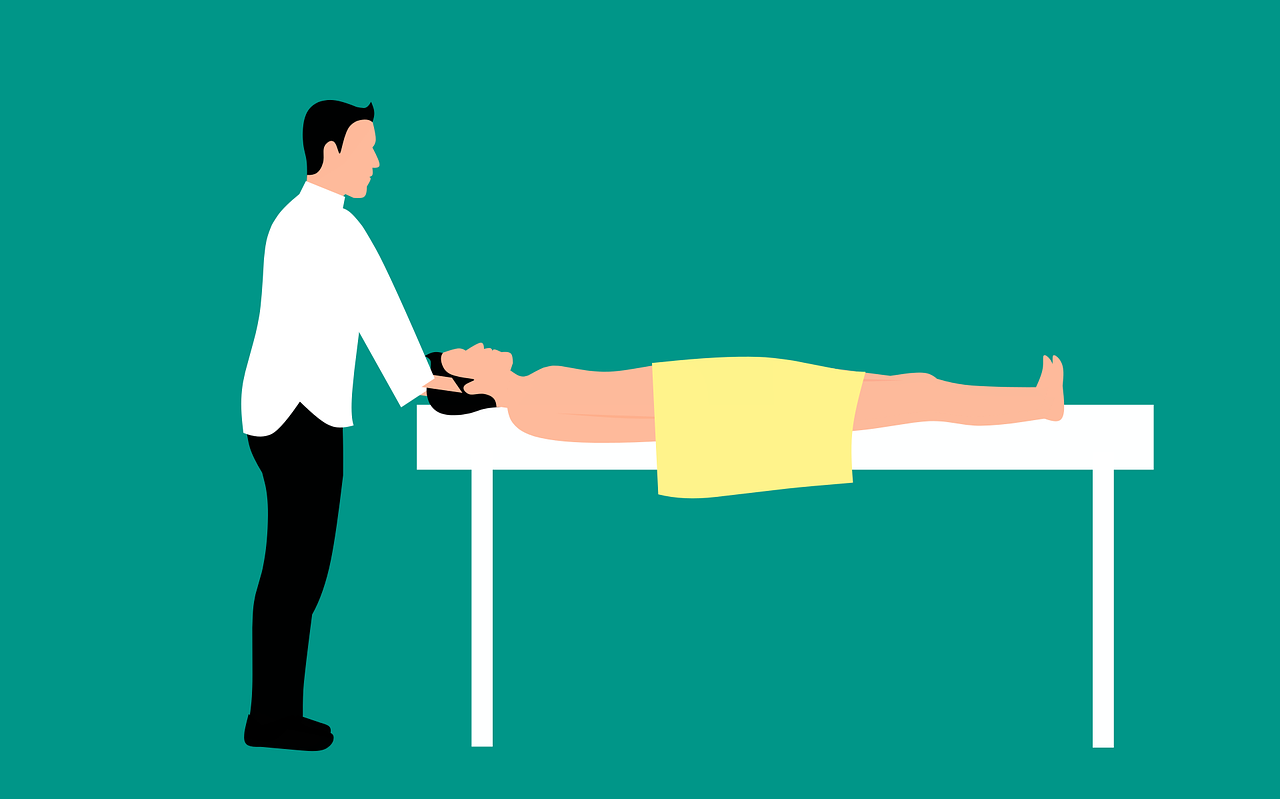
If you find yourself waking up with shoulder pain from sleeping on it, you’re not alone. Many people experience discomfort and stiffness in their shoulders after a night’s rest. The good news is that there are ways to relieve this pain and get back to enjoying restful sleep. In this article, we will explore some simple yet effective techniques that can help alleviate shoulder pain caused by sleeping on it. By implementing these methods, you’ll be able to wake up feeling refreshed and free from discomfort, ready to take on the day ahead.

Understanding Shoulder Pain
Shoulder pain can be a frustrating and debilitating experience. It can affect your daily activities, including sleeping. Understanding the causes of shoulder pain and its effects on sleep is crucial in finding effective solutions. Luckily, there are various ways to manage shoulder pain and improve the quality of your sleep. It’s essential to explore different sleeping positions, choose the right mattress and pillow, incorporate pre-sleep stretches and exercises, employ heat and cold therapy, apply topical pain relief, improve your sleep environment, adjust your sleeping habits, and, if needed, seek professional help.
Causes of Shoulder Pain
Shoulder pain can stem from various factors, such as muscle strains, rotator cuff injuries, tendonitis, bursitis, arthritis, or even poor posture. Sleeping on your shoulder in an uncomfortable position for an extended period can also contribute to shoulder pain. It’s important to identify any underlying conditions or injuries that may be causing your discomfort to effectively address the issue.
Effects of Sleeping on the Shoulder
Sleeping on your shoulder can aggravate any existing shoulder conditions or lead to new ones. Putting pressure on the shoulder joint or compressing the nerves and blood vessels can cause pain, numbness, tingling, and even muscle weakness. Additionally, improper sleeping positions can disrupt your sleep, leading to a poor night’s rest and exacerbating other health issues. Understanding the effects of sleeping on the shoulder will help you make informed decisions about improving your sleep quality.
When to Seek Medical Assistance
If your shoulder pain persists, worsens, or is accompanied by other concerning symptoms, it is important to seek medical assistance. These symptoms may include severe pain, immobility, swelling, redness, or signs of infection. A medical professional can provide a proper diagnosis, recommend appropriate treatment options, or refer you to a specialist if necessary.
Best Sleeping Positions for Shoulder Pain
Finding the right sleeping position can significantly alleviate shoulder pain and promote better sleep. The best sleeping positions for shoulder pain include sleeping on your back or the unaffected side. Sleeping on your back keeps your spine aligned and allows the shoulder to rest naturally. Placing a pillow under your arm for support can also help. If you prefer sleeping on your side, try sleeping on the opposite side of the affected shoulder, with a pillow between your arms for added support.
Worst Sleeping Positions for Shoulder Pain
Certain sleeping positions can worsen shoulder pain and further strain the shoulder joint. Sleeping on the affected shoulder, with your arm positioned above your head, or in a fetal position, can all contribute to increased discomfort and potential shoulder injuries. Avoiding these sleeping positions can help prevent exacerbating shoulder pain and promote better sleep quality.
Importance of Mattress Firmness
Choosing the right mattress can make a significant difference in alleviating shoulder pain. A mattress with proper firmness provides adequate support for your body, including the shoulders. Medium-firm mattresses are usually the best option for individuals with shoulder pain, as they offer a balance between comfort and support. However, personal preference also plays a role, so testing out different mattress firmness levels is essential to find the one that suits you best.
Ideal Pillow Types for Shoulder Support
Alongside a supportive mattress, the right pillow can enhance shoulder support and alleviate pain. Memory foam pillows or those with contouring features are excellent choices as they conform to your shoulder’s shape, relieving pressure points. Additionally, pillows with an adjustable loft or thickness can be customized to suit your shoulder support needs. It’s essential to ensure that the pillow adequately supports your head and neck alignment while providing proper cushioning for your shoulder.

Shoulder-Specific Pillows
For those with severe shoulder pain or specific shoulder conditions, shoulder-specific pillows can be beneficial. These pillows are designed with a groove or cutout that accommodates the shoulder, allowing for a more natural and comfortable sleeping position. Shoulder-specific pillows distribute the weight of your head and neck evenly, reducing strain on the shoulder and promoting better sleep.
Shoulder Immobilizers
In some cases, shoulder pain may be severe enough to require additional support during sleep. Shoulder immobilizers can help stabilize the shoulder joint, providing rest and protection while you sleep. These devices restrict movement to prevent further injury or strain, allowing your shoulder to heal properly. However, it is essential to follow medical advice and consult a healthcare professional before using shoulder immobilizers to ensure their proper use.
Orthopedic Sleep Aids
Orthopedic sleep aids, such as shoulder supports or braces, can provide additional support and comfort for individuals with shoulder pain. These aids are designed to promote proper shoulder alignment, relieve pressure, and reduce strain on the shoulder joint while sleeping. It is advisable to consult a healthcare professional or orthopedic specialist to determine if orthopedic sleep aids are suitable for your specific condition and needs.
Pre-Sleep Shoulder Stretches and Exercises
Engaging in pre-sleep shoulder stretches and exercises can help reduce muscle tension, improve flexibility, and promote relaxation before sleep. Including these exercises in your bedtime routine can have a positive impact on shoulder pain and overall sleep quality. Here are a few pre-sleep shoulder stretches and exercises you can try:
Neck and Shoulder Rolls
Start by sitting or standing straight with your arms relaxed at your sides. Gently roll your shoulders back in a circular motion, moving them up, back, down, and then forward. Repeat this sequence several times, allowing your neck and shoulders to relax as you perform the rolls.
Pendulum Stretch
Stand and lean forward, placing your unaffected hand on a table or chair for support. Let your affected arm hang straight down, and gently swing it in a pendulum motion. This stretch helps relieve shoulder stiffness and increases blood flow to the area.
Cross-Body Stretch
Bring your affected arm across your body, using your unaffected arm to hold it just above the elbow. Gently pull the affected arm toward your chest until you feel a stretch in the shoulder. Hold for 15-30 seconds, then release. Repeat on the other side.
Wall-Assisted Stretch
Stand facing a wall and place your fingertips on the wall at shoulder height. With your feet shoulder-width apart, slowly lean forward, allowing your body to stretch your shoulder. Hold the stretch for 15-30 seconds and release. Repeat as needed.
Benefits of Heat Therapy
Heat therapy can provide relief for shoulder pain by increasing blood flow, relaxing muscles, and reducing inflammation. Applying heat to your shoulder before sleep can help promote relaxation and alleviate discomfort. Heating pads, warm towels, or hot water bottles are excellent options for heat therapy. Ensure the heat source is not too hot to avoid burns, and limit heat therapy sessions to 15-20 minutes at a time.
Benefits of Cold Therapy
Cold therapy, also known as cryotherapy, can be effective in reducing inflammation, swelling, and pain associated with shoulder injuries. Applying cold packs or ice wrapped in a thin towel to the affected shoulder can provide temporary relief and numb the area. Cold therapy is generally recommended for acute injuries or when inflammation is present. Limit cold therapy sessions to 15-20 minutes at a time and allow the shoulder to rest before reapplying.
Application Techniques for Heat and Cold
When applying heat or cold to your shoulder, it’s important to use proper techniques to maximize their benefits. For heat therapy, ensure the heat source is evenly distributed and avoid direct contact with the skin to prevent burns. For cold therapy, always wrap ice or cold packs in a thin towel before applying to protect the skin from frostbite. Remember to consult a healthcare professional if you have any underlying medical conditions or concerns regarding heat or cold therapy.
Over-the-Counter Pain Relief Options
Over-the-counter (OTC) pain relief options, such as nonsteroidal anti-inflammatory drugs (NSAIDs) or acetaminophen, can provide temporary relief from shoulder pain. These medications help reduce inflammation and alleviate pain, allowing for better sleep. It’s crucial to carefully follow the recommended dosages and consult a healthcare professional if you have any pre-existing medical conditions or are taking any other medications.

Topical Analgesics and Ointments
Topical analgesics and ointments can offer localized pain relief when applied directly to the affected shoulder. These products often contain ingredients like menthol, camphor, or capsaicin, which provide a cooling or warming sensation to alleviate pain. Topical analgesics can be a convenient option for managing shoulder pain, especially when combined with other treatment methods. However, it’s important to read the instructions, avoid applying to broken skin, and consult a healthcare professional if you experience any adverse reactions.
Natural Remedies
If you prefer natural remedies, there are several options that may help alleviate shoulder pain. Applying arnica gel or cream, a plant-based anti-inflammatory, to the affected area may provide relief. Additionally, using essential oils, such as lavender or peppermint oil, in a diluted form can have a soothing effect when applied topically. However, it’s essential to research and understand the potential benefits and risks associated with natural remedies, and consult with a healthcare professional before use.
Investing in a Supportive Mattress
Investing in a supportive mattress is essential for managing shoulder pain and improving sleep quality. A mattress that adequately supports your body, including the shoulders, can alleviate pressure points and promote proper spinal alignment. Consider factors such as firmness, material, and individual preferences when selecting a supportive mattress. It’s advisable to test different options and read customer reviews to find a mattress that suits your specific needs.
Controlling Room Temperature
Creating a comfortable sleep environment is crucial for a good night’s rest. For individuals with shoulder pain, maintaining a slightly cooler room temperature can help alleviate discomfort. A temperature between 60-67 degrees Fahrenheit (15-19 degrees Celsius) is generally recommended for optimal sleep. Additionally, bedding materials that regulate body temperature, such as breathable cotton or moisture-wicking fabrics, can enhance sleep comfort.
Minimizing Noise and Light Disruptions
Noise and light disruptions can significantly impact sleep quality, especially for individuals with shoulder pain. Minimizing these disruptions can promote a more restful sleep experience. Consider using earplugs, sound machines, or white noise apps to block out unwanted noise. Installing blackout curtains or wearing an eye mask can help create a dark and calm sleep environment. Experimenting with different methods to minimize noise and light disruptions can lead to more restorative sleep.
Establishing a Consistent Sleep Schedule
Establishing a consistent sleep schedule can help regulate your body’s internal clock and improve sleep quality. Try to go to bed and wake up at the same time every day, including weekends. Consistency trains your body to prepare for sleep and wakefulness at specific times, promoting a smoother transition into sleep. By adhering to a regular sleep schedule, you can better manage shoulder pain and enhance overall sleep health.
Avoiding Excessive Shoulder Strain During the Day
To minimize shoulder pain at night, it’s important to avoid excessive shoulder strain during the day. Be mindful of your posture, especially when sitting for prolonged periods or using electronic devices. Take frequent breaks to stretch your neck and shoulders and practice proper ergonomic techniques. Avoiding activities that strain the shoulder, such as heavy lifting or repetitive overhead motions, can also help prevent exacerbation of shoulder pain.
Avoiding Strenuous Exercise Close to Bedtime
Engaging in strenuous exercise close to bedtime can increase alertness, making it challenging to fall asleep. Additionally, intense exercise can elevate heart rate and body temperature, potentially worsening shoulder pain. It’s advisable to finish vigorous workouts at least a few hours before bedtime to allow your body time to wind down and cool off. Incorporating low-impact exercises, such as yoga or gentle stretching, in the evening can aid relaxation and prepare your body for sleep.
Physical Therapy and Rehabilitation
If shoulder pain persists or intensifies, seeking professional help is crucial. Physical therapy and rehabilitation programs can provide targeted exercises, stretches, and techniques to strengthen the shoulder, increase range of motion, and reduce pain. A physical therapist can also assess your sleep position and provide recommendations for ergonomic changes or modifications tailored to your specific needs.
Chiropractic Care
Chiropractic care focuses on aligning the musculoskeletal system, including the spine, to alleviate pain and improve overall health. A chiropractor can perform adjustments or manipulations to the shoulder and spine, relieving tension and promoting proper alignment. By addressing underlying musculoskeletal imbalances, chiropractic care may contribute to reducing shoulder pain and enhancing sleep quality.
Orthopedic Evaluation
When shoulder pain becomes persistent and interferes with your daily life, an orthopedic evaluation may be necessary. Orthopedic specialists are trained to diagnose and treat conditions affecting the musculoskeletal system, including the shoulders. They can assess the severity of your condition, order diagnostic tests, such as X-rays or MRI, and recommend appropriate treatment options, including surgery if needed.
Alternative Therapies
In addition to traditional medical approaches, alternative therapies may provide additional relief for shoulder pain. These therapies can include acupuncture, massage therapy, or transcutaneous electrical nerve stimulation (TENS). Acupuncture involves the insertion of thin needles into specific points on the body to stimulate healing and reduce pain. Massage therapy can help relax muscles, increase blood flow, and relieve tension in the shoulder. TENS devices deliver low-level electrical currents to the affected area, providing pain relief. It’s important to consult with a healthcare professional before considering alternative therapies to ensure their safety and effectiveness.
In conclusion, shoulder pain from sleeping on it can significantly impact your quality of life. By understanding the causes of shoulder pain, implementing proper sleeping positions, choosing the right mattress and pillow, incorporating pre-sleep stretches and exercises, utilizing heat and cold therapy, applying topical pain relief, improving your sleep environment, adjusting your sleeping habits, and seeking professional help when necessary, you can effectively manage shoulder pain and improve your sleep quality. Remember to listen to your body, consult healthcare professionals as needed, and prioritize self-care to ensure a restful and pain-free night’s sleep.





